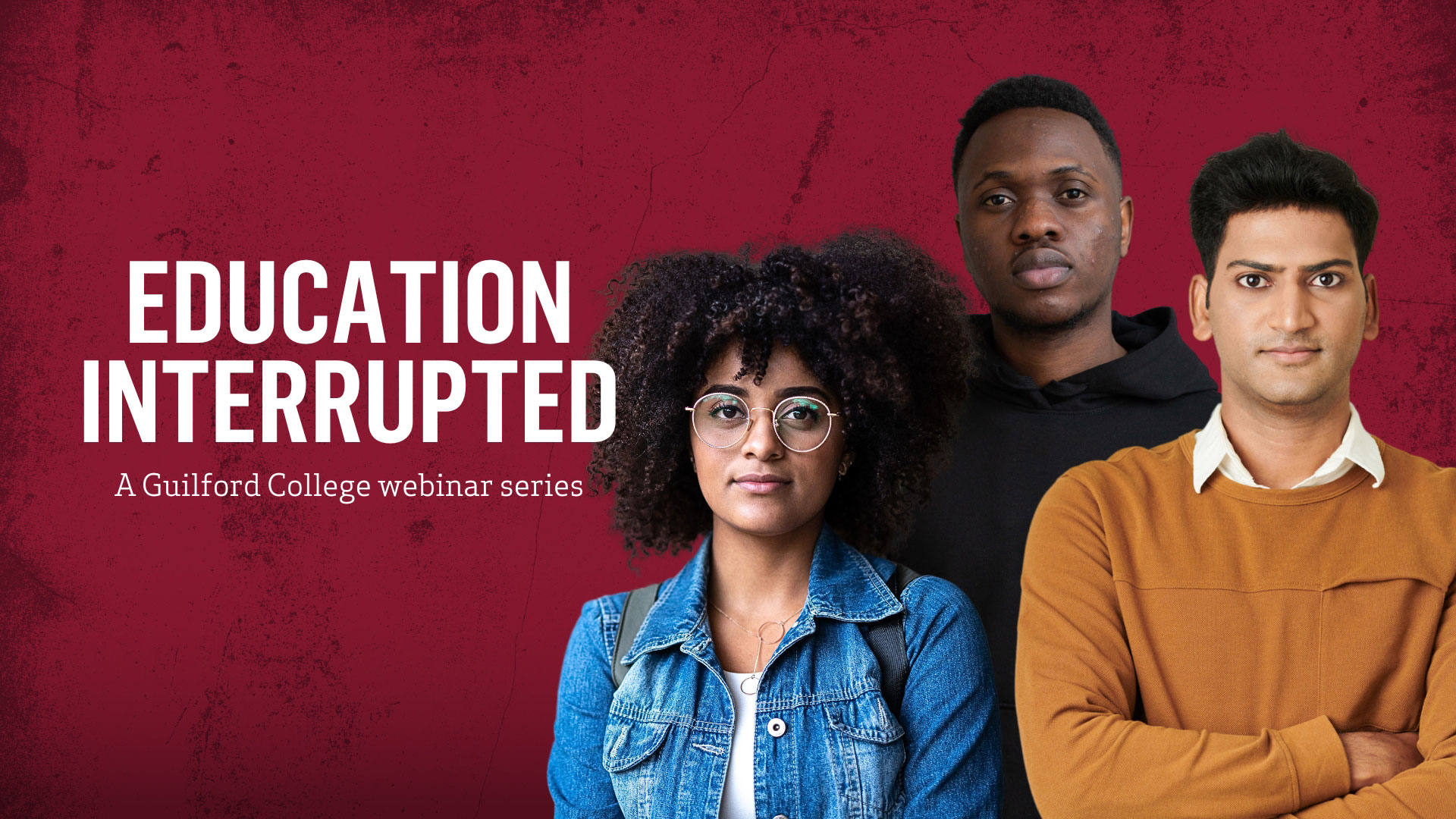
The College will host a series of interviews with students whose education has been disrupted from violence in their countries.
“Getting a proper education is incredibly difficult when you don’t have a desk, you don’t have a bookbag, you’re eating one meal a day. You don’t even have a pencil.”
In wartime Ukraine, nearly half of the country’s students are learning online or in bomb shelters. In Israel’s war with Hamas, Gaza’s schools have been bombed or closed, leaving hundreds of thousands of students without formal schooling or a safe place to spend their days. Conflicts across the globe are robbing more than 220 million children and young adults of an education, according to a United Nations report.
Guilford College hopes to shed light and seek answers to the impact those conflicts are having on learning with “Education Interrupted,” a six-part webinar series originating on campus next month.
Through “Education Interrupted,” national and global experts and leaders working on meeting the educational needs in conflict situations will share insights into the realities faced by displaced and at-risk students.
They’ll also offer innovative strategies designed to provide vital support and mitigate the adverse effects of war and conflict on education. The recorded interviews will be available for a worldwide audience on the College's website.
Noor Ghazi, the University Sponsorship Program Director for Every Campus A Refuge at Guilford, will interview students and education experts for the series. She knows the impact a disrupted education can have on students.
Noor was 1 and living with her family in Iraq when the United Nations placed far-reaching economic sanctions on the country in 1990 for its invasion of Kuwait. Those sanctions stayed largely in place for 13 years.
“Getting a proper education is incredibly difficult when you don’t have a desk, you don’t have a bookbag, you’re eating one meal a day. You don’t even have a pencil,” says Noor.
Education was interrupted for millions of children in Iraq when the U.S. invaded the country in 2003. A few years later, during the Iraqi civil war between various sectarian Shia and Sunni armed groups, Noor remembers stepping over dead bodies on her way to school. “That became the daily norm for me,: she says. “There are so many education-related tools and support that students in America might take for granted that students in conflicts go without.”
The webinar series is an extension to President Kyle Farmbry’s Conceptualizing Peace program, which began last spring and has grown to include other events and conversations involving the role institutions of higher education can take in supporting peace across the globe.
“In addition to providing educational opportunities for students, colleges and universities have a number of responsibilities in today’s world,” says Kyle. “One of those roles is exploring ways we can help students continue their educational journeys in the midst of war and conflict.”
Join Guilford in this critical conversation as we seek to raise awareness, foster understanding, and inspire collective action.

